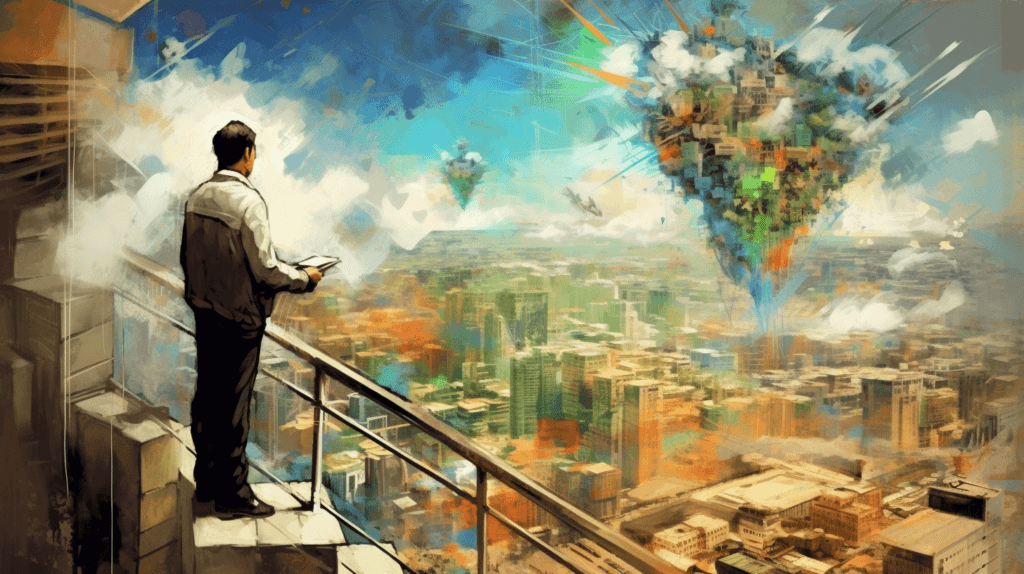Truth & Goodness
Poison on a Plate: What Drives Us to Eat Dangerously?
01 March 2026

The world around us transforms at a blistering pace. Climate, social, and geopolitical changes, and along with them problems humanity must face, pose many huge challenges for civilization. Man, in fact, is guided both by Eros, the urge to live, and by Thanatos, the urge for death and destruction. In all this, an individual must decide to fight, if they chose life – yet fortunately at the millennium’s threshold they’ve abandoned the god of war in favor of social activism, which has become one of the main domains of the generation born since 1990.
New media developing in the Internet’s space has created new opportunities for people. This has influenced the level of knowledge that in turn has built the awareness that each of us can have a significant impact on how our immediate environment looks. Those who have more courage and resources know they can change the world. But doesn’t the activist’s attitude generate excessive costs for the individual and society?
A generation of conformists living in abundance, so often criticized as sluggish and reluctant to make necessary changes, has already receded into the past. Civil society in the world’s most mature democracies, such as the US and Western European countries, has created conditions for understanding the tasks that humans face in their responsibility for humankind and the environment. Already to the fore are adult “millennials” and “Generation Z” who adopted social activism as an expression of their rebellion against civilizational threats.
Social media has also become a powerful tool, spreading new ideas at the speed of light and becoming a carrier of 21st-century thought. The world would be a paradise if each attitude, even the noblest, wasn’t “contaminated” by the “human” factor. The desire to change the world for the better can become a trigger for changing reality for the better – a source of suffering for the individual.

Problems that trigger the most emotions in people also attract the most social activity meant to be a cure for them. The perennial debate over gun legalization in the US becomes a brawl with each gun murder. The debate on climate change often turns into a ruckus of attacks and accusations, which leads to mutual suspicions of hidden agendas. Women’s equality activities trigger a huge amount of anger and frustration that obscures basic work and education. Equality marches in some countries draw crowds of aggressive opponents shouting obscene slogans, raising the temperature to such an extent that dialogue seems impossible. The “us vs. them” division begins. This polarization is rather like a tribal structure. Tribes of opponents and supporters start to differentiate, using heuristics and stereotypes, which arouses mutual hatred. This state is a source of serious suffering for a person, whether they’re someone who feels aversion to others or someone who experiences this aversion directed towards themselves. Seemingly beneficial social activity turns into a struggle in which there are no winners.
The problem becomes even more complicated when politicians use stereotypes. Acting to attract a new electorate or to mobilize and “cement” existing voters, they proclaim catchy slogans that, in fulfilling their function, must be pronounced yet not indifferent to the individual. Serious social issues are wielded cynically as instruments in political struggles. To everyone stuck in all this, it’s like a trap. And this is how the image is created of a “leftist” or “Democrat” who wants to kill unborn children, end driving cars with internal-combustion engines, cause a global crisis by banning conventional energy sources, and erase religion from public space. And the “conservative” or “Republican” who forces women to give birth to incurably sick children, poisons the environment by burning fossil fuels, or wants to create an evangelical state. By using the instrument of differentiating society, no space is left for “something in the middle” and the individual who seeks compromise and life in social harmony begins to suffocate, locked in this trap of opposing views, asking themself: “Escape? But where?”
Read also:
“Do good, avoid evil” is both the guiding idea of the world’s great religions and the basic construct of universal ethics. It’s sufficient to look at humanism, which in its assumptions excludes selfishness and postulates fraternity and solidarity. While one can’t deny the enormous contribution of religious communities to activities favoring the human, counteracting poverty, hunger, war, and other civilizational challenges, problems loom when one starts handling religion as another tool in fighting against one another.
Before the International Day of Remembrance for the victims of religious violence on August 22, 2020, Pope Francis said: “God does not need to be defended by anyone and does not want His name to be used to terrorize people. I ask everyone to stop using religion to stir up hatred, violence, extremism and blind fanaticism.” The Buddha, in turn, taught that “To avoid evil, to do good, and to purify one’s mind – that is the teaching of all Buddhas.”
Even these words of unassailable religious authorities seem at times to fail even in reaching coreligionists who, overcome with the desire for power, with hatred and through domination, and obviously with physical violence, act in frameworks of misunderstood social activity. Proclaiming slogans aimed at followers of other religions and under the guise of protecting one’s own culture or counteracting terrorism – this generates fear across society and often causes more resentment, more hatred, and ever more violence, the source of suffering among other human beings.
When we manage to keep our balance, raising our desire to help above the desire to win and love above the struggle, we may be able to achieve unselfish, prosocial activity. In 2022, the Journal of Happiness Studies reported that older adults who volunteer feel the greatest satisfaction with their lives, and when they engage in nongovernmental activities rather than working for a political party, they function better mentally. Research also confirms that volunteers experience greater satisfaction with life than non-volunteers, and this mounts higher the more their experiences satisfy an individual’s motivation to help. These may only be coefficients and numbers, but even by using intuition it’s simple enough to conclude that selfless helping while maintaining appropriate levels of self-care is, to use business-speak, a kind of win-win arrangement, and the most beneficial form of social activism.
When we focus on creatively directing our personal energy reserves and converting the sense of opposition into the power to make the world better, we will make changes – if not globally, at least in the microcosm of our surroundings, and this, showing proof of our agency, will certainly make us happier.
You may also be interested in:

Truth & Goodness
01 March 2026


Zmień tryb na ciemny